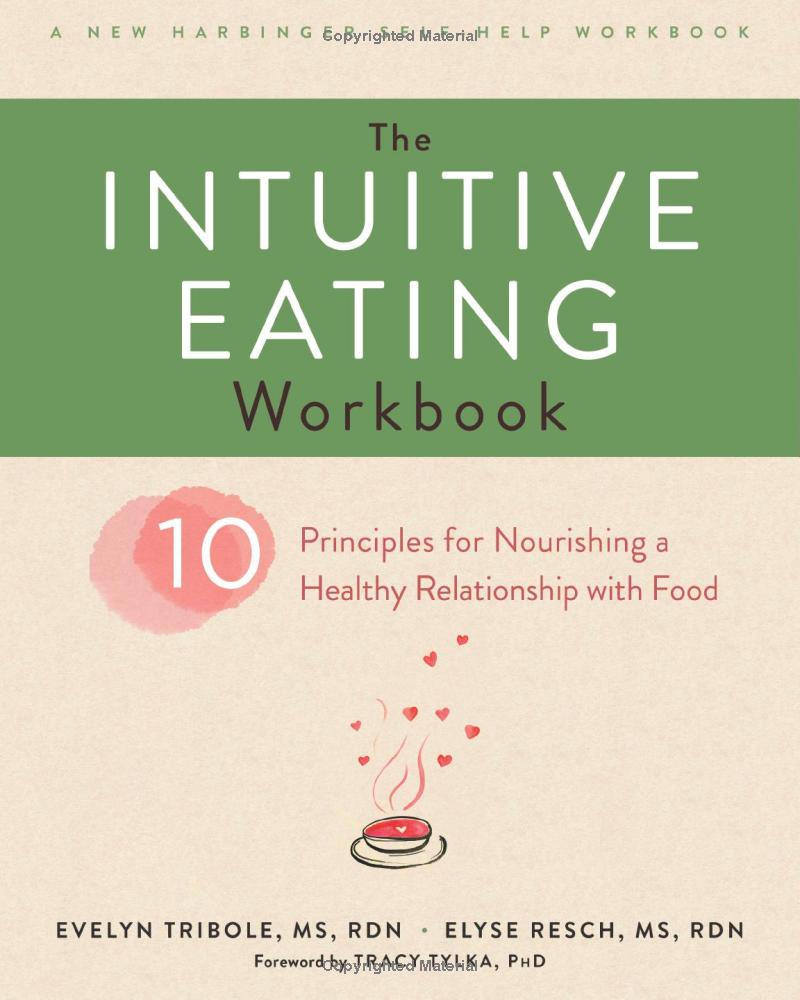As an Amazon Associate I earn from qualifying purchases.
Best Tips to Stop Stress Eating
In today’s fast-paced world, stress has become an inevitable part of our lives.
As we navigate various challenges and responsibilities, it’s no surprise that many of us turn to food as a source of comfort.
This coping mechanism, stress eating, can harm physical and emotional well-being.
In this comprehensive guide, brought to you by EATMOVEHEALTHY.com, we’ll delve into the intricacies of stress eating and provide practical strategies to help you overcome it.
Understanding the Connection between Stress and Eating
Stress eating, also called emotional eating, involves consuming food not out of physical hunger but as a response to emotional triggers.
When we experience stress, our bodies release hormones like cortisol, which can lead to cravings for high-calorie, sugary, or fatty foods.
These foods provide temporary relief by triggering the brain’s reward center, which creates a sense of comfort. However, this relief is short-lived and often followed by feelings of guilt and regret.
Vicious Cycle
Eating while stressed creates a vicious cycle that can be challenging to break.
The more we turn to food for comfort, the more our bodies become conditioned to seek solace in unhealthy eating habits.
This, in turn, leads to weight gain and a decline in self-esteem, which can further exacerbate stress and perpetuate the cycle.
6 Steps to Overcome Stress Eating
1. Mindful Awareness
One of the first steps to combating over eating is cultivating conscious awareness.
Pay close attention to your emotions and triggers when you want to eat.
Are you genuinely hungry, or are you seeking comfort?
By recognizing these patterns, you can interrupt the automatic response and make a conscious decision

2. Healthy Alternatives
Replace unhealthy comfort foods with nutritious alternatives.
Keep a stash of fresh fruits, vegetables, and nuts on hand.
These foods can satisfy your cravings while providing essential vitamins and minerals. Opt. for whole grains and lean proteins to stabilize blood sugar levels and maintain energy throughout the day.

3. Stress Management Techniques
Engage in stress-reduction techniques such as meditation, deep breathing exercises, yoga, or regular physical activity.
These practices can help lower cortisol levels, alleviate anxiety, and improve well-being. Finding healthy outlets for stress can reduce the urge to turn to food for comfort.

4. Create a Support System
Share your goals with friends, family, or a support group.
Having someone to confide in and hold you accountable can significantly impact your success in overcoming over eating.
Surround yourself with individuals who encourage healthy choices and provide emotional support.

5. Mindful Eating
Practice mindful eating by savoring each bite, eating slowly, and paying attention to how you feel during and after meals. This approach allows you to connect with your body’s hunger and fullness cues, preventing overeating and emotional eating.
6. Journaling
Keep a food and mood journal to track your eating patterns and emotions. This self-reflection can help you identify triggers and practices that lead to overeating. Over time, you’ll gain insight into your behaviors and make more informed choices.

Nourishing Your Body and Mind
At EATMOVEHEALTHY.com, we understand the importance of holistic well-being. Our goal is to provide practical strategies to overcome stress eating and guide you on a journey of self-discovery and self-care.
Stress management goes beyond just addressing the symptoms; it’s about nourishing your body and mind.
Nutrition Education
Our platform offers a wealth of nutrition education to help you make informed food choices. Learn about the impact of different nutrients on your mood and stress levels.
Discover the power of incorporating whole, nutrient-dense foods into your diet to support emotional well-being.
Movement and Exercise
Physical activity is a potent stress reliever. Explore our collection of exercise routines, from invigorating workouts to calming yoga sessions.
Engaging in regular exercise not only boosts your mood but also enhances your resilience against stress-induced cravings.

Mindfulness Practices
Delve into mindfulness practices that go beyond mindful eating
Discover meditation techniques, gratitude journaling, and mindfulness exercises that foster a sense of inner peace and reduce the need for emotional eating.
The Path to Emotional Well-Being
Breaking free from the grip of eating while you are stressed is a journey that requires patience and self-compassion.
By implementing these strategies from this guide and the resources available on EATMOVEHEALTHY.com, you can constructively develop a healthier relationship with food and manage stress.
Remember that change takes time, and setbacks are a natural part of the process. Celebrate your victories, no matter how small, and stay committed to your well-being.
If you’re ready to embark on a holistic journey towards overcoming eating while you can enhance your emotional well-being, explore more resources on EATMOVEHEALTHY.com.
Finally, stress eating is a problem that many people face, but it can be solved with the correct resources and assistance. Through mindful awareness, healthy alternatives, stress management techniques, and nurturing your body and mind, you can break free from the cycle of and lead a more balanced and fulfilling life.
FAQ
Stress-induced eating, or emotional or stress eating, refers to a common phenomenon where individuals consume food, often high in calories and low in nutritional value, as a response to emotional distress or heightened stress levels.
Psychological factors rather than actual physical hunger are what drives this behavior. When people experience stress, anxiety, sadness, or other strong emotions, they may turn to food for comfort or distraction.
The reasons behind stress-induced eating are complex. It’s often linked to the brain’s release of hormones like cortisol, which can increase appetite and prompt cravings for sugary or fatty foods.
People may also use food as a coping mechanism to temporarily alleviate emotional discomfort or provide a sense of control in challenging situations.
While occasional stress eating is everyday, excessive and frequent indulgence can lead to weight gain and associated health issues.
It’s crucial to recognize and address stress-induced eating patterns through healthier coping strategies like exercise, mindfulness, or seeking emotional support to manage stress in more sustainable ways.
- Hormonal Changes: When an individual experiences stress, the body releases stress hormones, such as cortisol. Cortisol can stimulate the appetite, increasing food cravings, particularly for high-calorie comfort foods. These hormonal changes can make people more likely to eat in response to stress.
- Emotional Coping: People often turn to food as a way to cope with and soothe their emotions when they are stressed. Eating can provide temporary comfort, pleasure, and distraction from negative feelings. This emotional aspect of eating is a way for individuals to self-soothe during times of stress.
- Reward System Activation: Stress can activate the brain’s reward system, making consuming comfort foods more pleasurable. This reinforces the habit of stress-induced eating, as it creates a positive association between eating and stress relief.
- Lack of Self-Control: Stress can impair self-control and decision-making abilities, making it harder for individuals to resist unhealthy food choices. Stress can harm the prefrontal cortex, which controls impulse control.
- Habit Formation: Repeatedly using food to cope with stress can lead to habit formation. Over time, individuals may develop a conditioned response to stress, reaching for food automatically when they feel stressed.
Understanding the relationship between stress and eating is crucial for developing healthier coping mechanisms and preventing the negative health consequences of excessive stress-induced eating.
Eating to relieve stress is a common behavior for many people, and it can be attributed to various psychological and physiological factors. Here are some reasons why people may turn to food as a coping mechanism for stress:
Emotional Comfort: Eating certain foods, especially those high in sugar or fat, can trigger the release of feel-good chemicals in the brain, such as dopamine. This can provide a temporary sense of comfort and pleasure, which can help alleviate stress temporarily.
Distraction: Focusing on eating can divert your attention from the source of stress, providing a temporary escape from the emotional turmoil. It’s a way to shift your focus away from the stressor and onto something else.
Habit and Routine: Over time, people can develop habits of eating in response to stress. If you’ve consistently turned to food in times of stress, it can become a conditioned response.
Biological Responses: Stress can lead to physiological changes in the body, including an increase in the hormone cortisol. Cortisol can trigger cravings for high-calorie, comfort foods, which can further reinforce the habit of stress eating.
Social and Cultural Factors: Food is often used as a way to socialize and celebrate, and it’s deeply ingrained in many cultures. People may turn to food during stressful situations because it’s a readily available and socially acceptable coping mechanism.
Lack of Coping Skills: Some individuals may not have developed healthy coping mechanisms for dealing with stress, so they default to what they know, which, in this case, is eating.
Self-Soothing: Eating can be a form of self-soothing. The act of chewing and tasting can be comforting, and it may provide a sense of control in a stressful situation.
While occasional stress eating is normal, it can become problematic when it’s the primary or only way you cope with stress. Overeating in response to stress can lead to weight gain and other health issues. It’s essential to develop healthier coping strategies for managing stress, such as exercise, meditation, talking to friends or a therapist, or engaging in hobbies that help you relax and unwind. If stress eating is a persistent issue that’s impacting your well-being, consider seeking professional help to address the underlying causes and develop more effective coping mechanisms.
Amazon and the Amazon logo are trademarks of Amazon.com, Inc or it's affiliates.
Related Posts
- Reduce Stress with Fitness
How to Reduce Stress with Fitness Table of Contents Improve Mood Stress has become an…
- Best Gift Ideas for Every Occasion
Best Gift Ideas for Every Occasion Finding the perfect gift can be challenging, whether for…
- Chickpea and Spinach Curry
Chickpea and Spinach Curry Indulge in the rich and flavorful experience of our Chickpea and…






